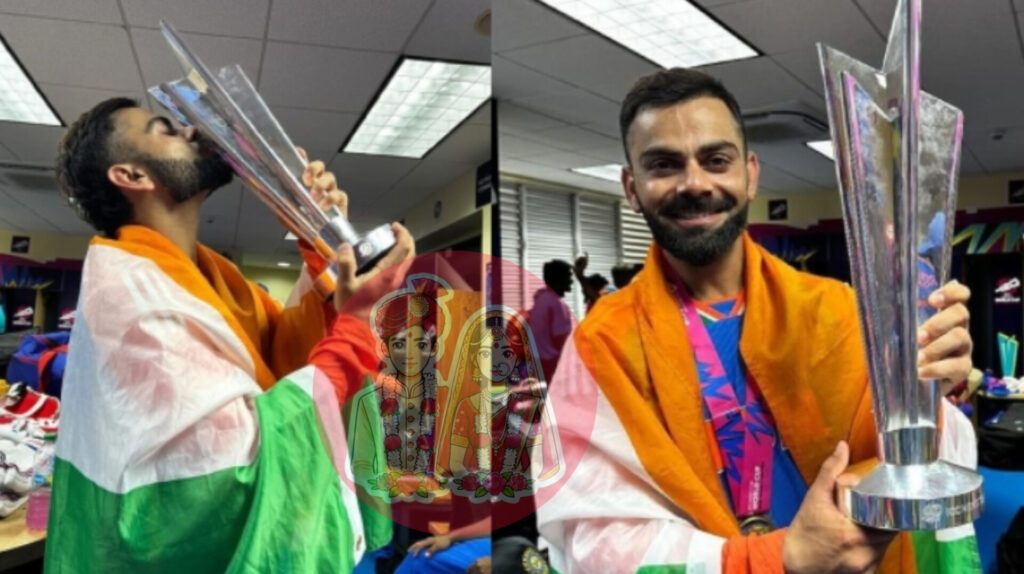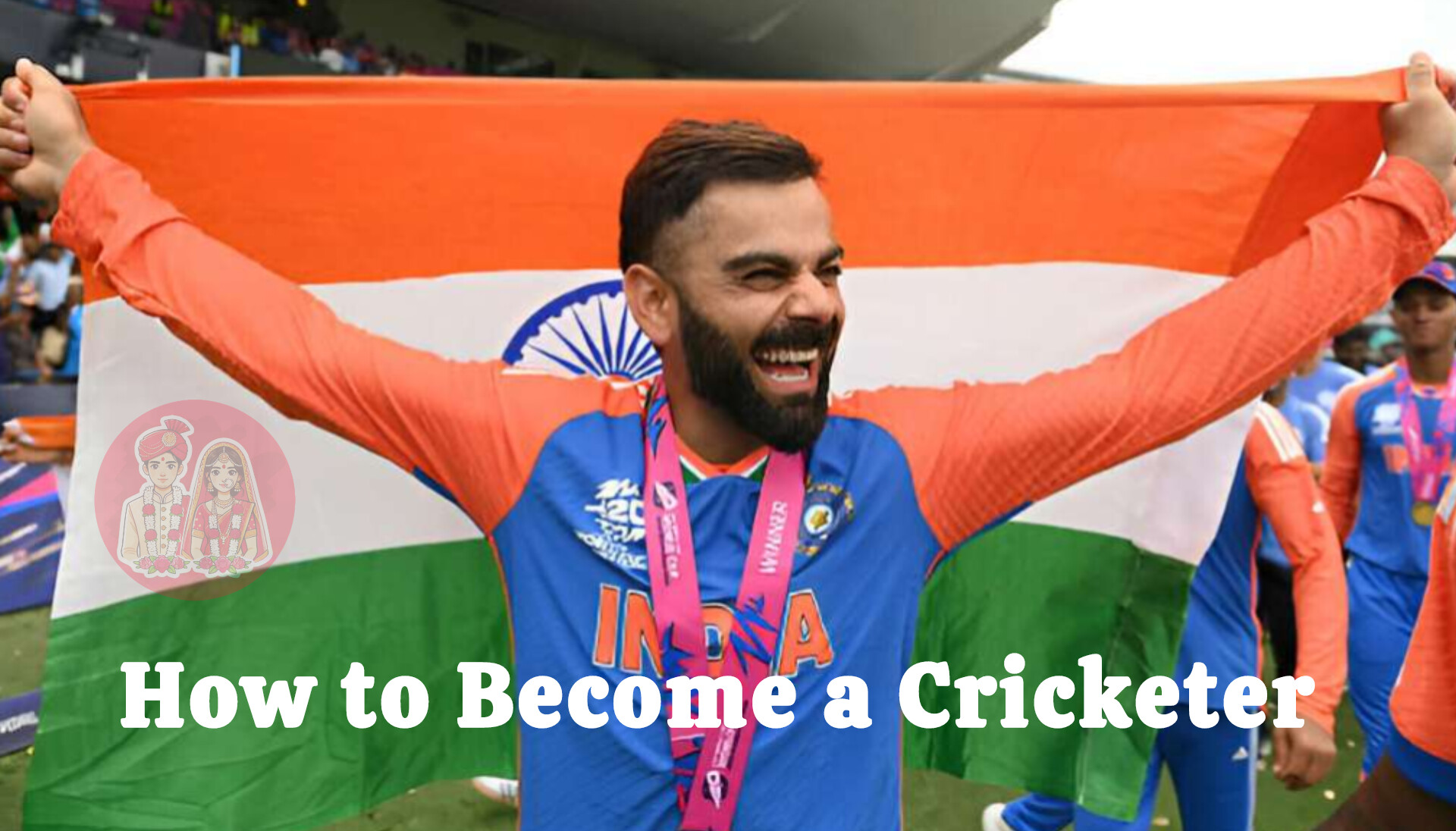Becoming a professional cricketer after completing 12th grade is a challenging but achievable goal, especially in a cricket-passionate country like India. It requires talent, dedication, strategic planning, and a structured approach to training and career progression. Below is a step-by-step guide tailored for someone who has just finished 12th grade, drawing on insights from various sources and general knowledge about cricket pathways.
Step-by-Step Guide to Becoming a Cricketer After 12th
- Assess Your Talent and Commitment
- Self-Evaluation: Honestly assess your cricketing skills (batting, bowling, fielding, or wicketkeeping). Do you have a natural aptitude or standout ability in any area? Seek feedback from coaches or experienced players to gauge your potential.
- Passion and Discipline: Professional cricket demands years of hard work, resilience, and sacrifice. Ensure you’re fully committed, as competition is fierce, and only a few make it to the top.
- Join a Reputed Cricket Academy
- Why It Matters: Academies provide professional coaching, advanced facilities (e.g., bowling machines, video analysis), and exposure to competitive environments. They help refine techniques, build discipline, and connect you with mentors.
- How to Choose: Research academies like the National Cricket Academy (NCA) in Bangalore, MRF Pace Foundation, or local ones (e.g., SONNET Cricket Club in Delhi). Look for experienced coaches, ideally former players, and check their track record. Ensure the academy suits your budget and location.
- Alternative: If finances are a constraint, join local clubs or school/college teams to start, but aim to transition to an academy for structured training.
- Focus on Fitness and Diet
- Physical Fitness: Cricket is physically demanding, with matches lasting hours or days. Build strength, endurance, agility, and flexibility through regular workouts (cardio, strength training, and agility drills). Examples include Virat Kohli’s intense fitness regime, which avoids cheat meals.
- Healthy Diet: Consume a balanced diet rich in proteins, moderate carbs, and low sugars. Consult a nutritionist to tailor a plan for energy and recovery.
- Mental Fitness: Develop mental toughness to handle pressure, setbacks, and competition. Practice visualization, meditation, or work with a sports psychologist if possible.
- Master the Basics and Specialize
- Learn the Game: Understand cricket’s rules, formats (Test, ODI, T20), and terminology (e.g., powerplay, field placements). Study professional matches to grasp strategies.
- Choose a Role: Identify your strength—batsman, bowler, all-rounder, or wicketkeeper—and focus on mastering it. For example, if you’re a bowler, work on variations (e.g., swing, spin).
- Practice Deliberately: Develop muscle memory through consistent practice. Work on specific skills (e.g., cover drives, yorkers) under a coach’s guidance.
- Play Competitive Cricket
- School/College Teams: If still in college, join the team to gain experience and understand team dynamics. This can lead to district-level selection.
- Local Clubs: Register with a local cricket club affiliated with your state’s cricket board (e.g., Cricket Club of India). Participate in trials to get selected.
- Tournaments: Play in local, private, or inter-club tournaments to showcase your talent. Consistent performances here can catch the eye of district or state selectors.
- Progress Through the Cricket Pathway
- District Level: Aim to get selected for district teams through trials or club performances. This is a stepping stone to state-level cricket.
- State Level: Perform well in district matches to qualify for state teams, which compete in tournaments like the Ranji Trophy (first-class), Vijay Hazare Trophy (ODI), or Syed Mushtaq Ali Trophy (T20). National selectors monitor these.
- IPL and National Teams: Exceptional state-level performances can lead to IPL trials or selection for India’s U-19, A-team, or senior national team. The IPL requires players to be at least 19, but 16–18-year-olds with domestic/international experience can also be picked.
- Find a Mentor and Network
- Mentorship: Seek a coach, retired cricketer, or senior player to guide you. They can offer personalized advice, refine techniques, and advocate for you at higher levels.
- Networking: Build connections with coaches, selectors, and players through academies, clubs, or tournaments. Platforms like CricHeroes allow you to track stats and create a digital profile to stand out.
- Balance Education and Cricket
- Why It’s Important: Cricket is highly competitive, and not everyone makes it professionally. Completing basic education (12th grade or a degree) provides a fallback career. Some academies require 10th-grade completion.
- Time Management: If pursuing college, choose institutions with strong cricket programs (e.g., those offering sports scholarships) to balance studies and training.
- Stay Consistent and Resilient
- Consistency: Perform reliably in matches across formats (T20, ODI, first-class) to get noticed by selectors. Track your stats (runs, wickets, catches) to build a strong profile.
- Handle Setbacks: Rejections, injuries, or poor form are common. Learn from failures, stay motivated, and keep training. Examples like Umesh Yadav, who rose from a coal miner’s son to an Indian cricketer, show persistence pays off.
- Late Starters: While starting young (8–12 years) is ideal, it’s possible to begin after 12th. Cricketers like Saeed Ajmal (debut at 30) and Dirk Nannes (switched to cricket in late 20s) succeeded later. Dedication can overcome age barriers.
- Understand Earnings and Opportunities
- Salary: In India, BCCI contracts range from ₹1 crore (Grade C) to ₹7 crore (Grade A+) annually, plus match fees and IPL earnings. Endorsements boost income for top players.
- Other Careers: If professional playing doesn’t work out, consider roles like coaching, umpiring, or team management.
- Women’s Cricket: Women’s cricket is growing, with BCCI funding and opportunities in leagues like the Women’s Premier League (WPL). The pathway is similar: academy, club, state, and national teams.
Key Tips
- Start Now: At 19 or after 12th, you’re not too late, but act quickly to maximize training time. Join a club or academy immediately.
- Invest in Equipment: Get a quality cricket kit (bat, protective gear, etc.) to practice effectively and boost confidence.
- Use Technology: Apps like CricHeroes help track performances, stream matches, and connect with teams or scouts.
- Stay Updated: Follow cricket rules and formats, as they evolve (e.g., T20 strategies). Watch professional games to learn from players like Virat Kohli or Smriti Mandhana.
Challenges
- Competition: India has millions of aspiring cricketers, so standing out requires exceptional skill and consistent performance.
- Financial Costs: Academy fees, equipment, and travel for tournaments can cost ₹5,000–₹10,000 initially, with academies varying by location. Seek sponsorships or local support if needed.
- Time Commitment: Balancing cricket with studies or part-time work can be tough. Prioritize time management.
Success Stories

- Virat Kohli: Joined a cricket academy at age 9, played for Delhi U-19 by 15, and debuted for India at 19, showing the value of early training and persistence.
- Sachin Tendulkar: Debuted for India at 16, proving talent and hard work can fast-track a career.
- Late Bloomers: Misbah-ul-Haq and Kedar Jadhav debuted in their late 20s, showing it’s possible to succeed after 12th with dedication.
Next Steps
- Immediate Action: Search for local cricket clubs or academies in your city (e.g., Google “cricket coaching in [your city]”). Attend trials or enroll within the next month.
- Set Goals: Aim to join a district team within 1–2 years and a state team within 3–5 years. Track progress with small milestones (e.g., scoring 50 runs in a match).
- Seek Guidance: Contact coaches or local cricket boards for trials or advice. If you’re unsure, career counselors (e.g., Mindgroom, Leverage Edu) can help map your path.
If you share your location, age, or specific skills (e.g., batsman, bowler), I can tailor advice further. Would you like details on academies in a specific city, trials, or tips for a particular cricket role?

